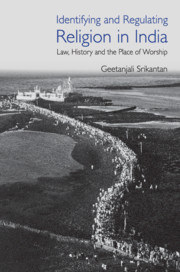
- Cited by 4
-
Cited byCrossref Citations
This Book has been cited by the following publications. This list is generated based on data provided by Crossref.
Choudhury, Rishad 2022. Wahhabis without Religion; or, A Genealogy of Jihadis in Colonial Law, 1818 to 1857. Comparative Studies of South Asia, Africa and the Middle East, Vol. 42, Issue. 2, p. 404.
Suresh, Sabarish 2024. The Cartojuridism of the British East India Company. Law and History Review, Vol. 42, Issue. 3, p. 469.
Chakrabarti, Anindita Dube, Ayushi and Venkatraman, Shriram 2024. God’s wealth, legal frames, and the question of material and immaterial heritage: the case of Sree Padmanabhaswamy temple in Kerala, India. Cultural Studies, Vol. 38, Issue. 5, p. 794.
Fleming, Christopher T. 2024. Dharmaśāstra and the legal personality of deities in the Ayodhya verdicts (2010 & 2019). Contemporary South Asia, Vol. 32, Issue. 1, p. 26.
- Publisher:
- Cambridge University Press
- Online publication date:
- April 2020
- Print publication year:
- 2020
- Online ISBN:
- 9781108886307
- Subjects:
- Legal History, Area Studies, South Asian History, Law, Asian Studies, History


